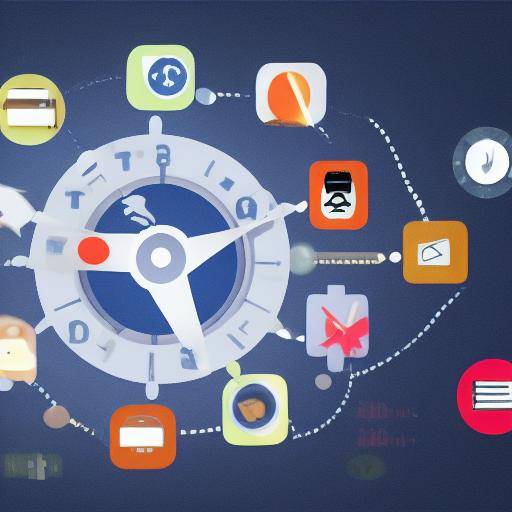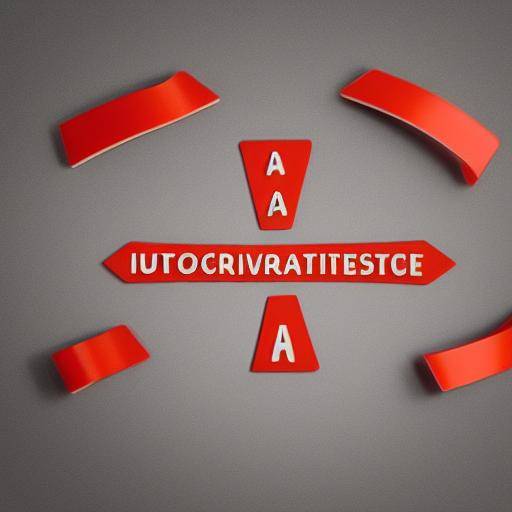
Self-discipline is an essential ability to achieve maximum productivity. In the world of work, self-discipline translates into the ability to focus on important tasks, stay organized and meet deadlines. Efficient time management and the ability to maintain high levels of concentration are closely linked to self-discipline. In this article we will thoroughly explore the impact of self-discipline on productivity, as well as strategies to improve and maximize its influence on labour efficiency.
History and background
Self-discipline has been a topic of interest throughout history, with roots in ancient philosophy and modern psychology. From the teachings of philosophers like Aristotle and Plato to the influence of contemporary theorists like B.F. Skinner, the concept of self-discipline has evolved significantly.
Some important milestones in the study of self-discipline include William James' pioneering work on the strength of will and the importance of self-discipline to achieve goals. This approach has influenced various fields, from psychology to business management.
In-depth analysis
Self-discipline impacts directly on productivity allowing people to keep their focus on their goals despite distractions. People with high self-discipline tend to be more efficient in time management, leading to greater productivity. However, self-discipline also faces challenges, such as decision-making fatigue and mental exhaustion.
Full review
The effective application of self-discipline in the working environment requires a balanced approach that combines self-regulation with the ability to create effective habits. Methods for improving self-discipline include environmental structuring, establishing clear goals and self-reflection practice.
Comparative analysis
Efficient time management and efficiency are key elements that are directly affected by self-discipline. Time management involves activities planning and effective use of resources, while efficiency relates to achieving optimal results in the shortest possible time.
Practical advice and recommendations
To strengthen self-discipline, it is essential to establish solid routines, effectively delegate tasks and practice self-control. In addition, the incorporation of strategic pauses during the working day can improve the ability to maintain self-discipline throughout the day.
Industry perspectives and expert opinions
Productivity experts highlight the importance of self-discipline as a determining factor in achieving labour excellence. In this context, the ability to stay focused on long-term goals and resist the temptation of procrastination becomes a crucial differentiation for professionals.
Case studies and practical applications
Success cases that attribute productivity to self-discipline can be found in different sectors, from entrepreneurship to entrepreneurship. Effective leaders often point to self-discipline as a fundamental aspect in their path to achieving significant goals.
Future trends and predictions
The future of self-discipline in the working environment is characterized as an increasingly valued and sought-after capacity. In a world full of constant distractions, those who can maintain high levels of self-discipline will be in a favorable position to achieve exceptional levels of productivity.
Conclusion
Self-discipline has a significant impact on productivity, time management and work efficiency. Strengthening self-discipline not only implies an increase in labour performance, but also contributes to a sense of personal achievement and general well-being. By incorporating effective strategies to improve self-discipline, individuals can optimize their work performance and achieve their goals with greater consistency and satisfaction.
Frequently asked questions
1. What is the importance of self-discipline in labour productivity?
Self-discipline plays a crucial role in labour productivity by allowing people to keep their focus on important tasks, avoid distractions and meet deadlines. In addition, it strengthens the ability to maintain high levels of concentration and maximize the effective use of time.
2. How can self-discipline be improved in the working environment?
The best self-discipline in the working environment involves the application of solid routines, the establishment of clear objectives and the practice of self-reflection. It is also crucial to avoid procrastination and to maintain self-control against distractions.
3. What is the relationship between self-discipline, time management and work efficiency?
Self-discipline directly influences the ability to manage time efficiently, as well as to achieve optimal results in the shortest possible time. It acts as a fundamental component to maximize individual and organizational work efficiency.
4. What challenges do people face in trying to strengthen their self-discipline?
In trying to strengthen self-discipline, people often face challenges such as decision-making fatigue, mental exhaustion and the temptation to yield to distractions. The management of these challenges requires the implementation of effective self-regulation strategies.
5. What are some practical strategies to strengthen self-discipline in the workplace?
Some practical strategies to strengthen self-discipline at the workplace include establishing solid routines, self-control, effectively delegating tasks and taking strategic breaks during the day of work.
6. What future trends are observed in relation to self-discipline and labour productivity?
Future trends suggest greater recognition of the importance of self-discipline in the working environment. Organizations and practitioners in various sectors are expected to seek ways of strengthening this capacity to achieve optimal levels of productivity and efficiency.
In short, self-discipline plays a key role in improving labour productivity, efficient management of time and achieving efficiency. By implementing effective strategies to strengthen self-discipline, people can optimize their work performance and achieve their goals with greater consistency and satisfaction.






















































